Syria's Druze sect: caught in the middle of Israeli tensions
Israel has used attacks on religious minority by forces loyal to Syria's new government to justify strikes across the border
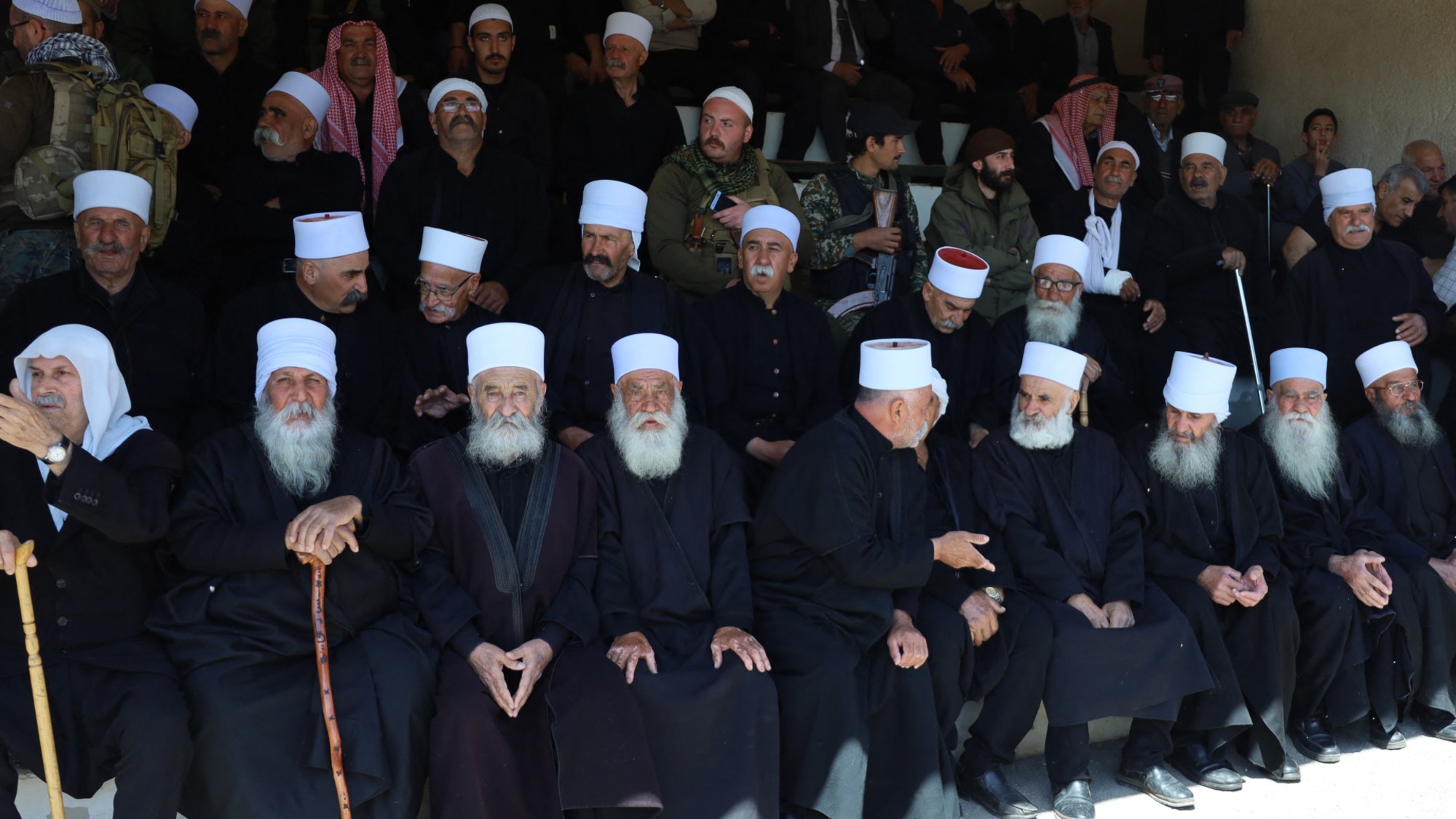
A free daily email with the biggest news stories of the day – and the best features from TheWeek.com
You are now subscribed
Your newsletter sign-up was successful
Violence has once again broken out in fractured Syria between forces allied with the new Islamist regime and fighters from one of the country's religious minorities.
Dozens of members of the Druze community were killed in clashes with pro-government forces near Syria's southern border with Israel last week, according to the UK-based war monitoring service, the Syrian Observatory for Human Rights.
In response, Israel carried out strikes across Syria, including near the presidential palace in Damascus, saying it aimed to send "a clear message" to the interim government. "We will not allow [Syrian] forces to deploy south of Damascus or any threat to the Druze community," Israel's PM Benjamin Netanyahu said. Syria's leadership, however, blamed "outlaw groups" for the violence, and called Israeli strikes a "dangerous escalation".
The Week
Escape your echo chamber. Get the facts behind the news, plus analysis from multiple perspectives.

Sign up for The Week's Free Newsletters
From our morning news briefing to a weekly Good News Newsletter, get the best of The Week delivered directly to your inbox.
From our morning news briefing to a weekly Good News Newsletter, get the best of The Week delivered directly to your inbox.
Who are the Druze?
A religious and ethnic Arab minority, originally an offshoot of Islam. The "unique" group dates back to the 11th century, following a belief system that incorporates elements of Islam, Hinduism and even classical Greek philosophy, said the Pew Research Center.
There are an estimated 700,000 Druze in Syria, making them the country's third-largest religious group; there are also around 230,000 in Lebanon and 25,000 in Jordan. Israel and the Palestinian territories are home to about 150,000 Druze, most of whom hold Israeli citizenship and are subject to its military draft, according to New Lines. Druze make up less than 2% of Israel's population but have "the highest rate of enlistment", with 80% signing up.
The situation is more "complicated" in the Golan Heights, a majority-Druze area annexed from Syria by Israel. There, most have repeatedly refused Israeli citizenship and "consider themselves Syrian".
How did they fare under Assad?
Bashar al-Assad's rule was mainly concentrated in big cities and "the coastal heartland of the Alawite sect" to which he belonged, said the BBC. But other regions were "partially or almost completely out of his control".
A free daily email with the biggest news stories of the day – and the best features from TheWeek.com
During Syria's civil war, the Druze were generally neutral: neither "fully aligned" with the Assad regime, nor "allied to opposition or jihadist groups", said New Lines. Many "refused military conscription" and some leaders even "negotiated local self-defence arrangements" independent of the army. Those militias defended the Druze from jihadists, such as Islamic State; some are still active today.
Why are they being targeted now?
When he appointed himself Syria's interim president, Ahmed al-Sharaa vowed that religious minorities would be protected. But Syria has been bristling with sectarian tension. The regime has "already begun imposing 'Sunni Islamist' strictures on many aspects of society", said professor of Arab politics Joseph Massad on Middle East Eye. In March, security forces and allied groups reportedly massacred more than 1,700 civilians from the Alawite community.
The most recent clash with Druze fighters was "sparked by a voice recording attributed to a Druze man", said France24. He was "ostensibly cursing the Prophet Mohammed". The clip was widely shared online but Druze leaders say it was "fabricated".
Last week's violence suggested to the Druze that either Al-Sharaa "doesn't have control of all his allies, or that he unleashed them in a deliberate effort to crush a mounting insurgency", said New Lines. Sheikh Hikmat al-Hijri, the spiritual leader of Syria's Druze, has described the attacks on the community as "genocidal".
Why is Israel getting involved?
From a purely strategic viewpoint, maintaining the stability of the Druze is seen as "critical" for Israel's national security, said the Israeli non-profit Alma Research and Education Center. Weakened minority groups "often become clients of hostile jihadist forces". Israel's "hard-learned lesson" from the 7 October massacre is that "allowing a jihadist monster to grow unchecked at the border is unacceptable".
Israel's motivation is at least partially humanitarian, too. The Druze population in Israel is "deeply integrated into its national and defence fabric" and has "consistently demonstrated loyalty to the state". While the threat of a massacre of Syria's Druze "remains very real", ignoring pleas for help from across the border is "not an option".
But Israel's claims that its strikes will pressure Syrian authorities into protecting the Druze have been "met with cynicism" from Druze leaders, who know Israel "does not want a heavily armed Syria on its border", said Al Jazeera.
There is "mounting suspicion" that Israel is ultimately "angling for control of huge swathes of the south of Syria", said New Lines. Activists accuse Netanyahu of using Druze as "political pawns", leveraging their plight to justify Israel's increasing encroachment into Syria and "stoke internal resentment".
Harriet Marsden is a senior staff writer and podcast panellist for The Week, covering world news and writing the weekly Global Digest newsletter. Before joining the site in 2023, she was a freelance journalist for seven years, working for The Guardian, The Times and The Independent among others, and regularly appearing on radio shows. In 2021, she was awarded the “journalist-at-large” fellowship by the Local Trust charity, and spent a year travelling independently to some of England’s most deprived areas to write about community activism. She has a master’s in international journalism from City University, and has also worked in Bolivia, Colombia and Spain.
-
 Antonia Romeo and Whitehall’s women problem
Antonia Romeo and Whitehall’s women problemThe Explainer Before her appointment as cabinet secretary, commentators said hostile briefings and vetting concerns were evidence of ‘sexist, misogynistic culture’ in No. 10
-
 Local elections 2026: where are they and who is expected to win?
Local elections 2026: where are they and who is expected to win?The Explainer Labour is braced for heavy losses and U-turn on postponing some council elections hasn’t helped the party’s prospects
-
 6 of the world’s most accessible destinations
6 of the world’s most accessible destinationsThe Week Recommends Experience all of Berlin, Singapore and Sydney
-
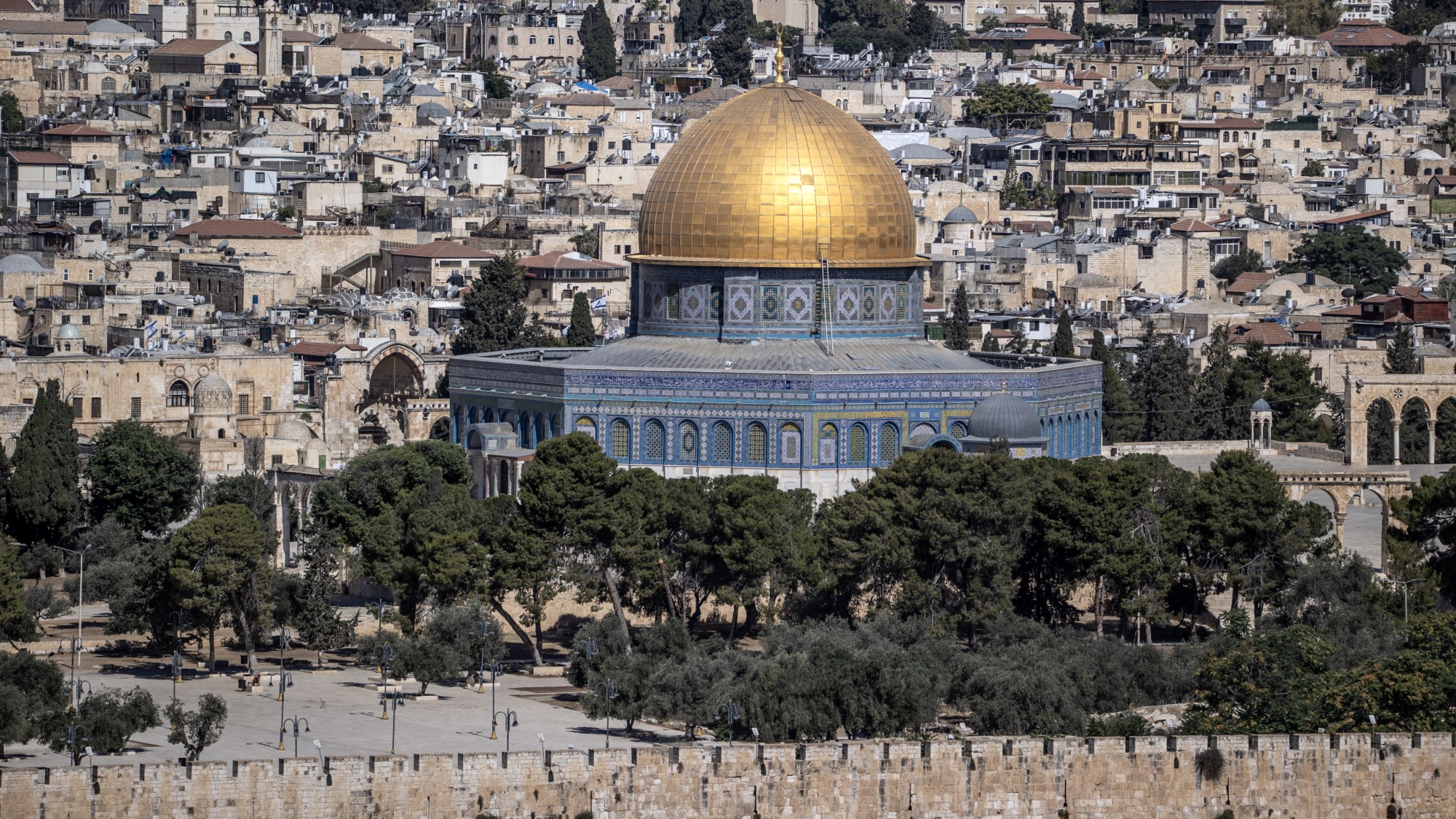 Temple Mount: the politics of Judaism's holiest site
Temple Mount: the politics of Judaism's holiest siteThe Explainer Latest provocation at religious site with a history of 'perpetual friction' risks violence erupting again
-
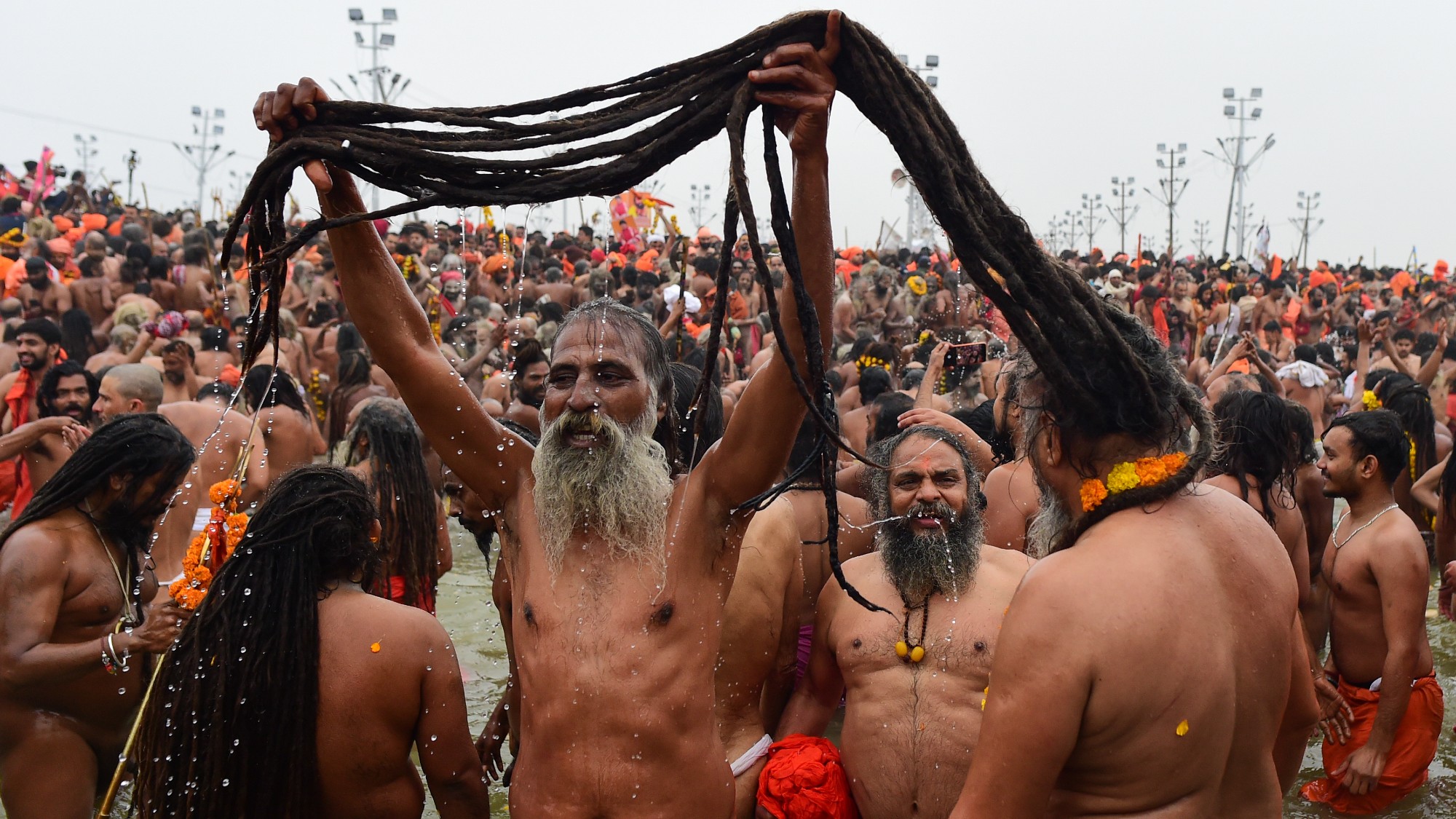 Maha Kumbh Mela: world's largest religious festival gets under way in India
Maha Kumbh Mela: world's largest religious festival gets under way in IndiaIn The Spotlight Politics of Hindu nationalism has cast a shadow over event touted as biggest ever gathering of humanity
-
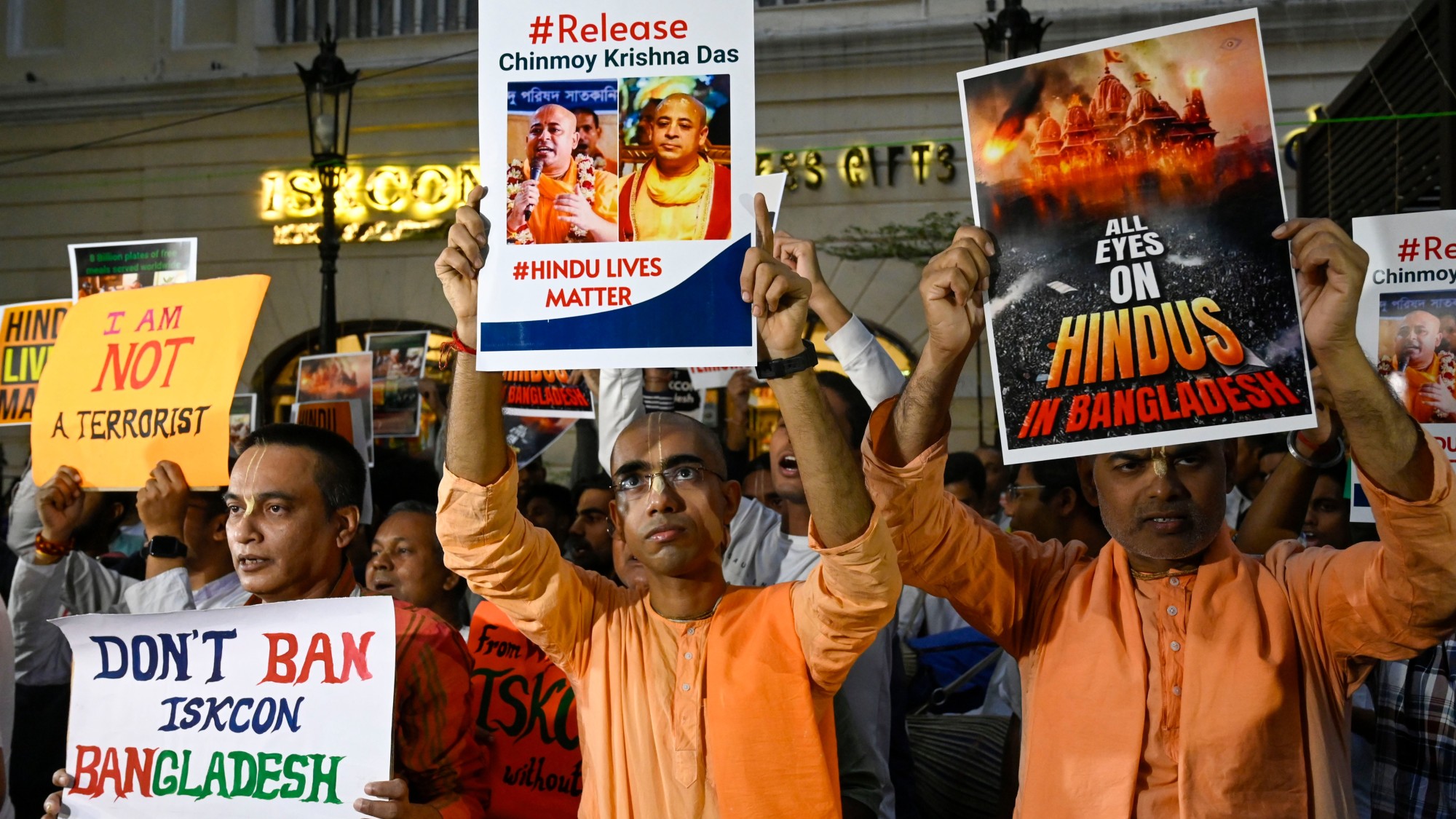 Why India is concerned at Bangladesh's 'Hinduphobia'
Why India is concerned at Bangladesh's 'Hinduphobia'The Explainer Arrest of monk Chinmoy Krishna Das stokes safety concerns for Hindu minority in Bangladesh
-
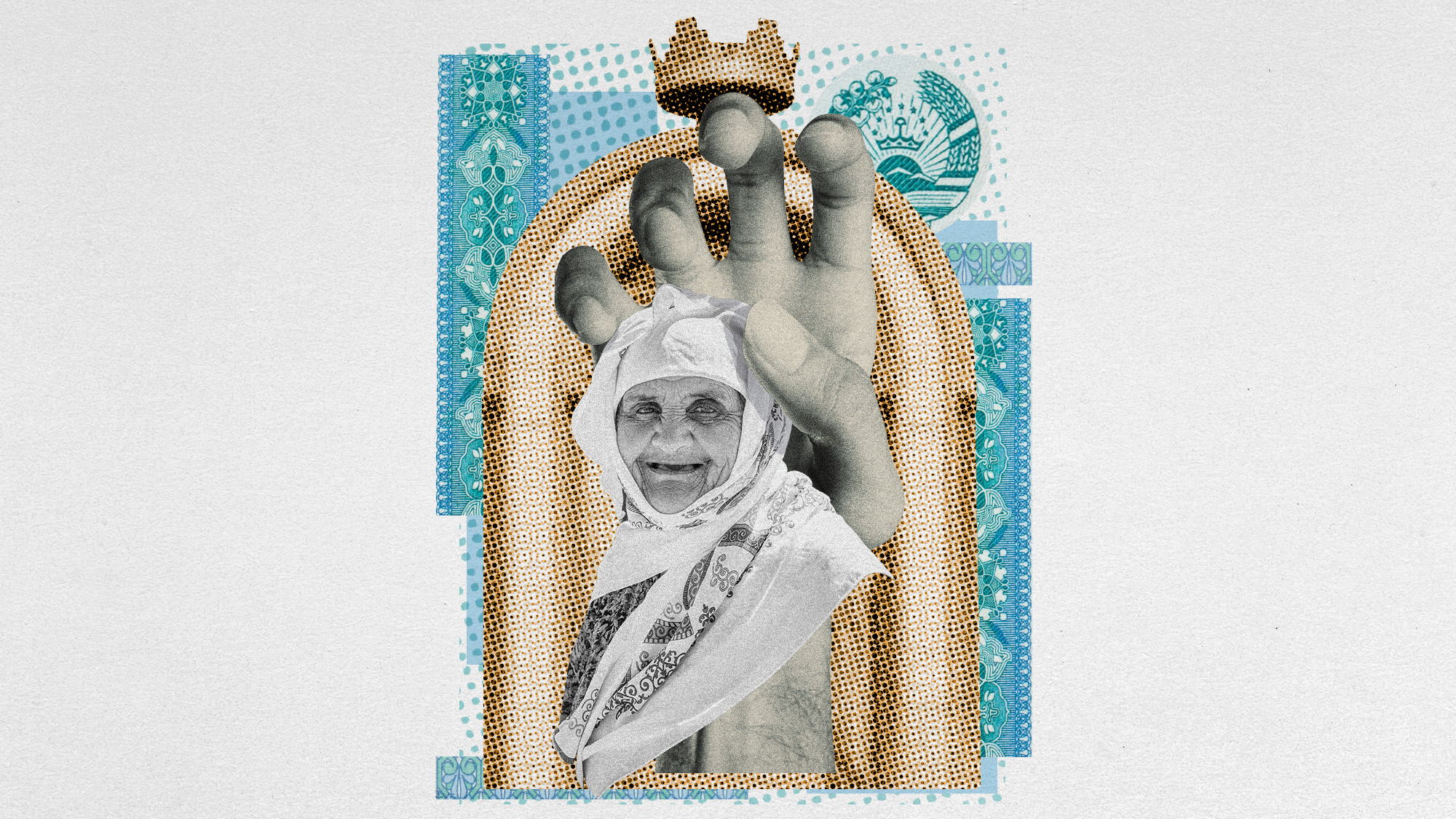 The 95% Muslim country that has banned the hijab
The 95% Muslim country that has banned the hijabUnder The Radar Outlawing the headscarf is the latest chapter in Tajikistan's clampdown on Islamic culture
-
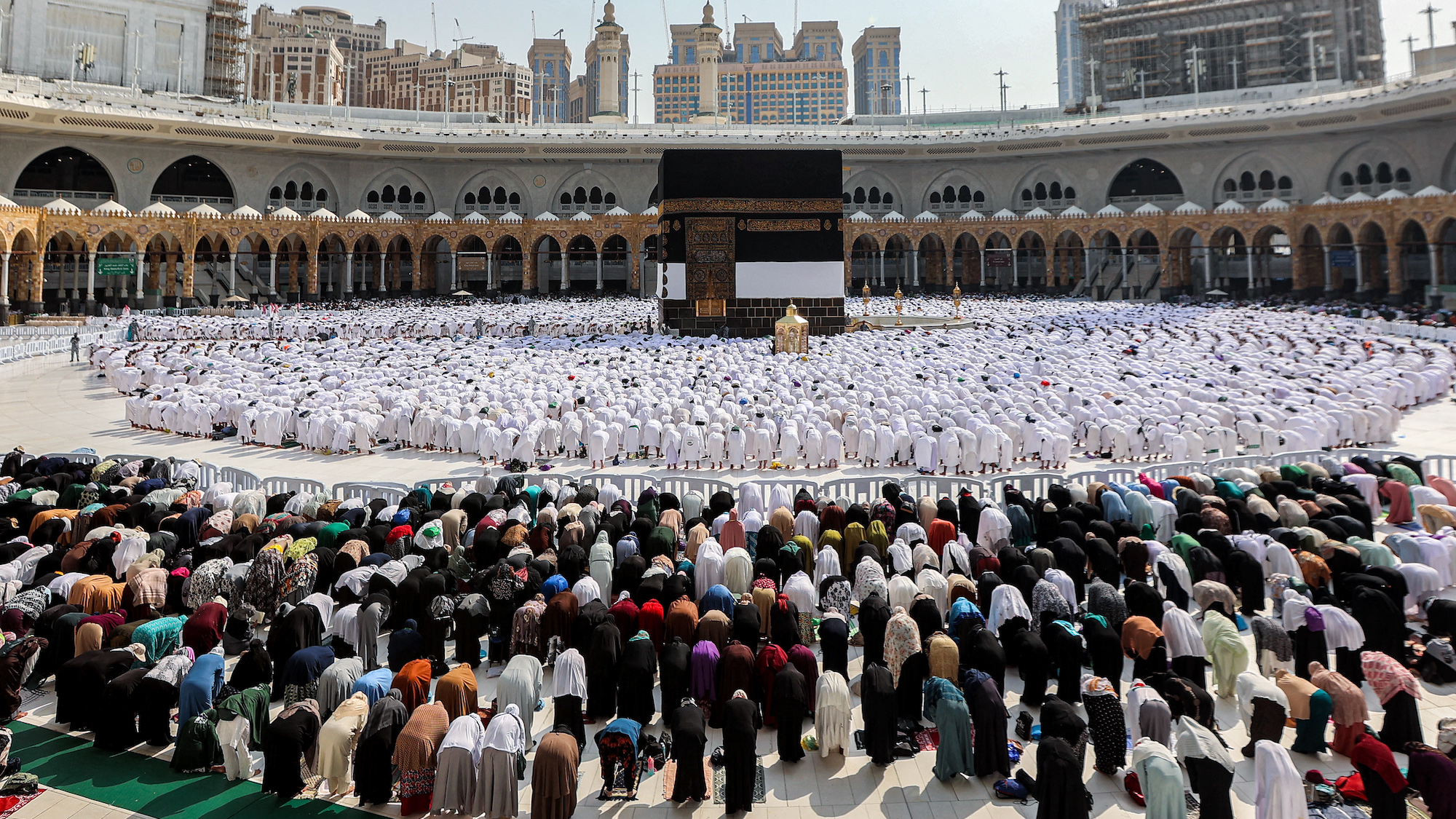 The unauthorised pilgrims sneaking into Mecca
The unauthorised pilgrims sneaking into MeccaIn the Spotlight Saudi authorities are warning of heavy fines for those caught travelling to the holy city this month without a permit
-
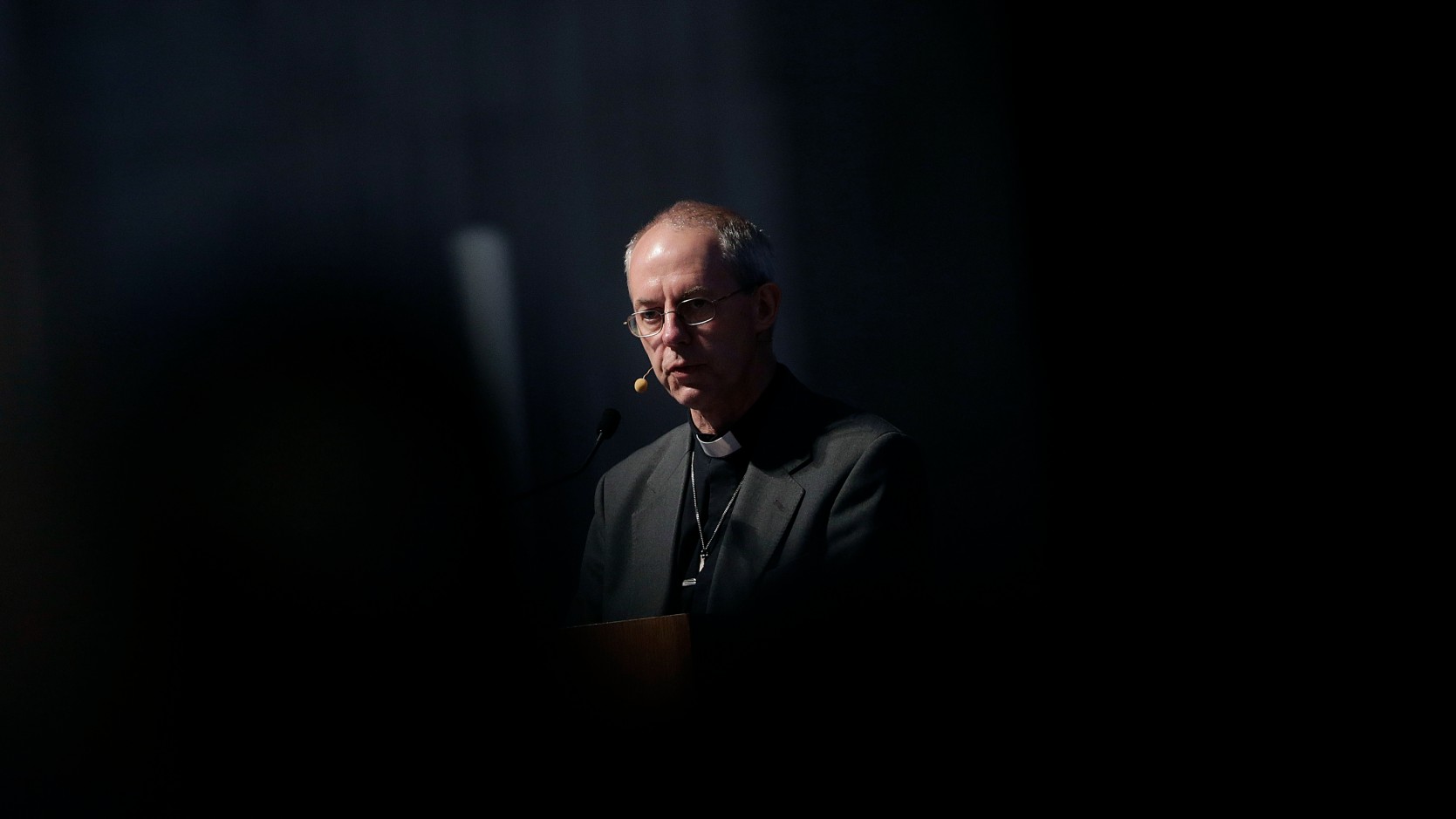 What does the rise in non-Christians mean for the Church of England?
What does the rise in non-Christians mean for the Church of England?Today's Big Question Latest census reveals England and Wales now minority Christian countries for first time
-
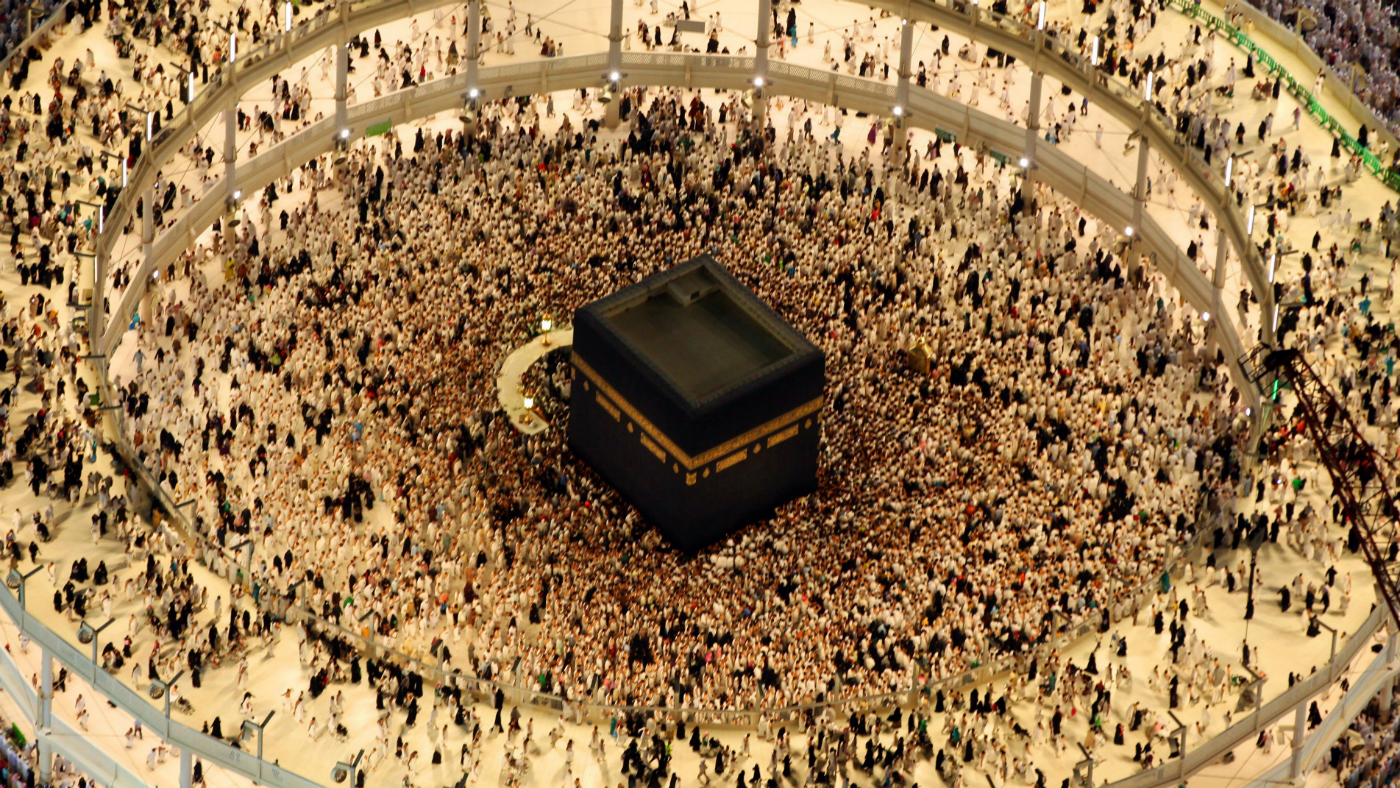 52 ideas that changed the world - 51. Islam
52 ideas that changed the world - 51. IslamIn Depth Followers of the religion make up a quarter of the global population
-
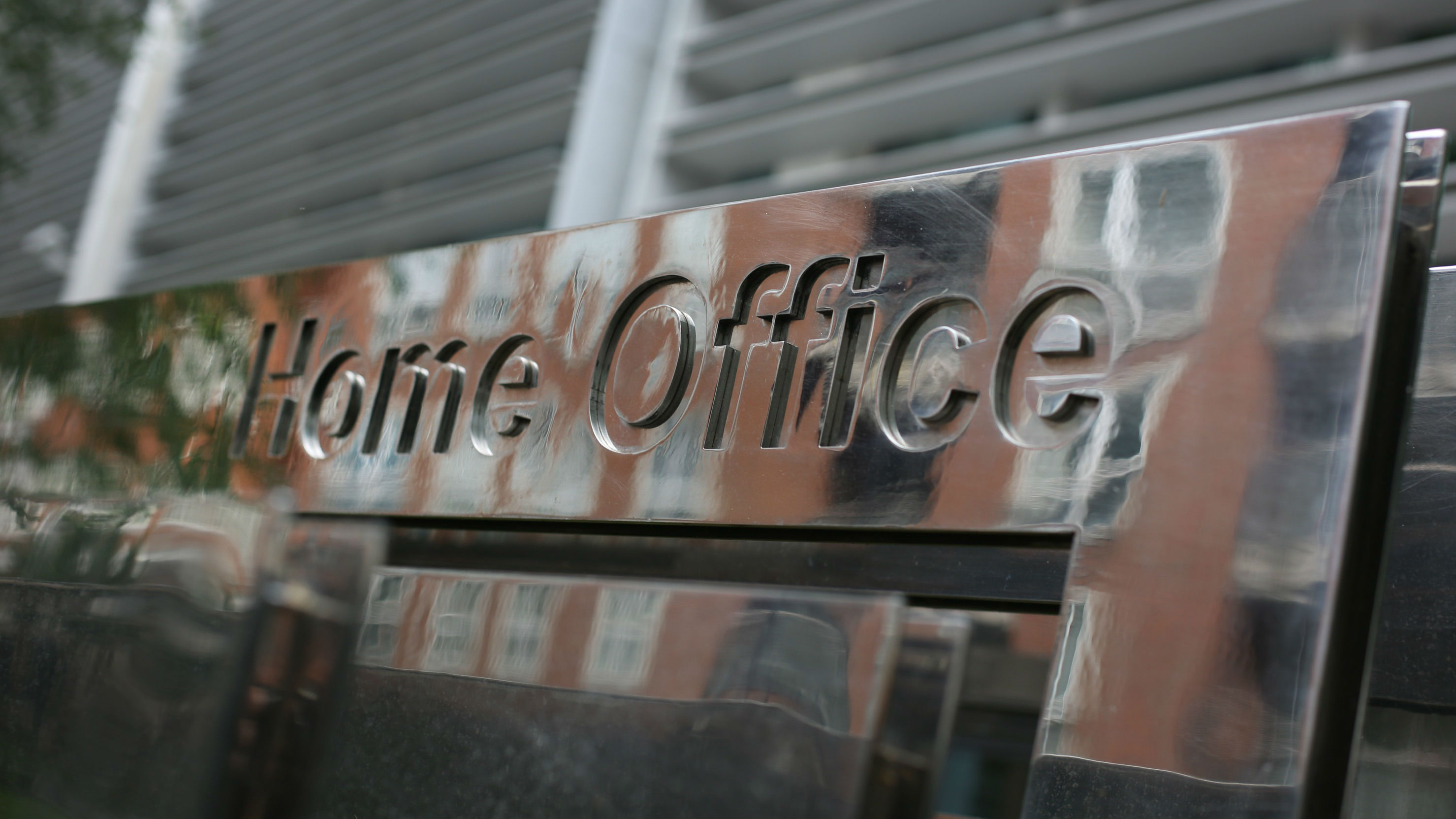 Home Office uses violent Bible verses to deny Christian asylum
Home Office uses violent Bible verses to deny Christian asylumSpeed Read Refusal letter says the passages are ‘inconsistent’ with Iranian man’s claim to have converted to ‘peaceful’ religion